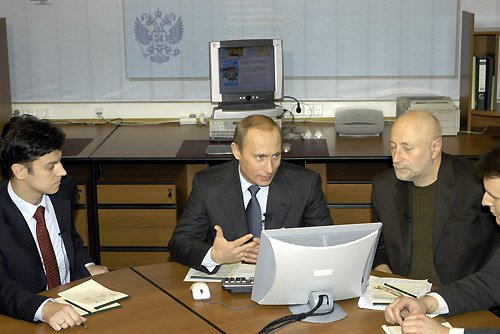 Recent developments in the Crimea have served as a timely warning to the West. Russian intervention was preceded by a cyber attack launched against Ukraine, causing havoc with their communication systems.
Recent developments in the Crimea have served as a timely warning to the West. Russian intervention was preceded by a cyber attack launched against Ukraine, causing havoc with their communication systems.
Experts have said the attacks were carried out by state-sponsored cyber units and groups of “patriotic” activists. In the run up to the invasion, attacks were launched against government websites, news services, and social media as a Russian cyber attack was able to defeat almost all communication systems used by Ukrainian forces based in Crimea.
On February 28, armed gunmen broke into Ukretlekom’s operation centre in Crimea, a move which would massively enhance Russia’s ability to intercept intelligence from Ukraine. Russia was able to interfere with Ukraine’s communications infrastructure with relative ease, simplified by the fact that many facilities were built by Soviet experts, many of who today reside in Russia.
This is not the first time that Russia’s cyber capabilities have been revealed. Russian interventions in Estonia in 2007 and Georgia in 2008 both featured powerful cyber attacks.
Commenting on the unfolding developments, Daniel Cohen who heads the Cyber Warfare programme at the Institute for National Security Studies (INSS), shared his thoughts with Defence IQ.
“For the first time, we think we saw a connection between the commando military people and the cyber people and together, they tried to infiltrate Ukrainian critical infrastructure and use cyber weapons. . . .”
The events in Ukraine appear to signal a growing reliance on cyber warfare and cyber espionage as part of Russia’s foreign policies. Countries from the former Soviet Union are understood to be under close surveillance as Russia seeks to exert its influence.
Speaking about the patterns of activity that have been witnessed between increased cyber activity and military action, [former Homeland Security official Paul] Rosenzweig said:
“They’re very intimately connected. I don’t know if they’re necessarily coordinated in one of those traditional hierarchical command and control pieces, but all of the Russian cyber ops in the Ukraine are intended as supportive of the on-going conflict in eastern Ukraine.”
[Peter] McBurney, Professor of Computer Science at King’s College London, has argued that this is part of Russia’s “Post-War Doctrine” that it seems to be developing. Russia seeks to purposefully cloud and confuse the situation, fuelling a situation where it’s not clear if an invasion has taken place, who the invaders are, and where responsibility lies.
“This muddiness makes it hard for the other side to mobilise internal or external support, and to react proportionately and timeously. Invoking NATO help is much harder if it’s not entirely certain whether this is a foreign invasion or just a civil war.”
“I think Russian cyber activities have to be seen in the light of this new doctrine – as just one more activity in a portfolio of activities designed to intimidate and confuse the other side.”
Image: Russian President Vladimir Putin, Jan. 19, 2004 (photo: Office of the President of Russia)
